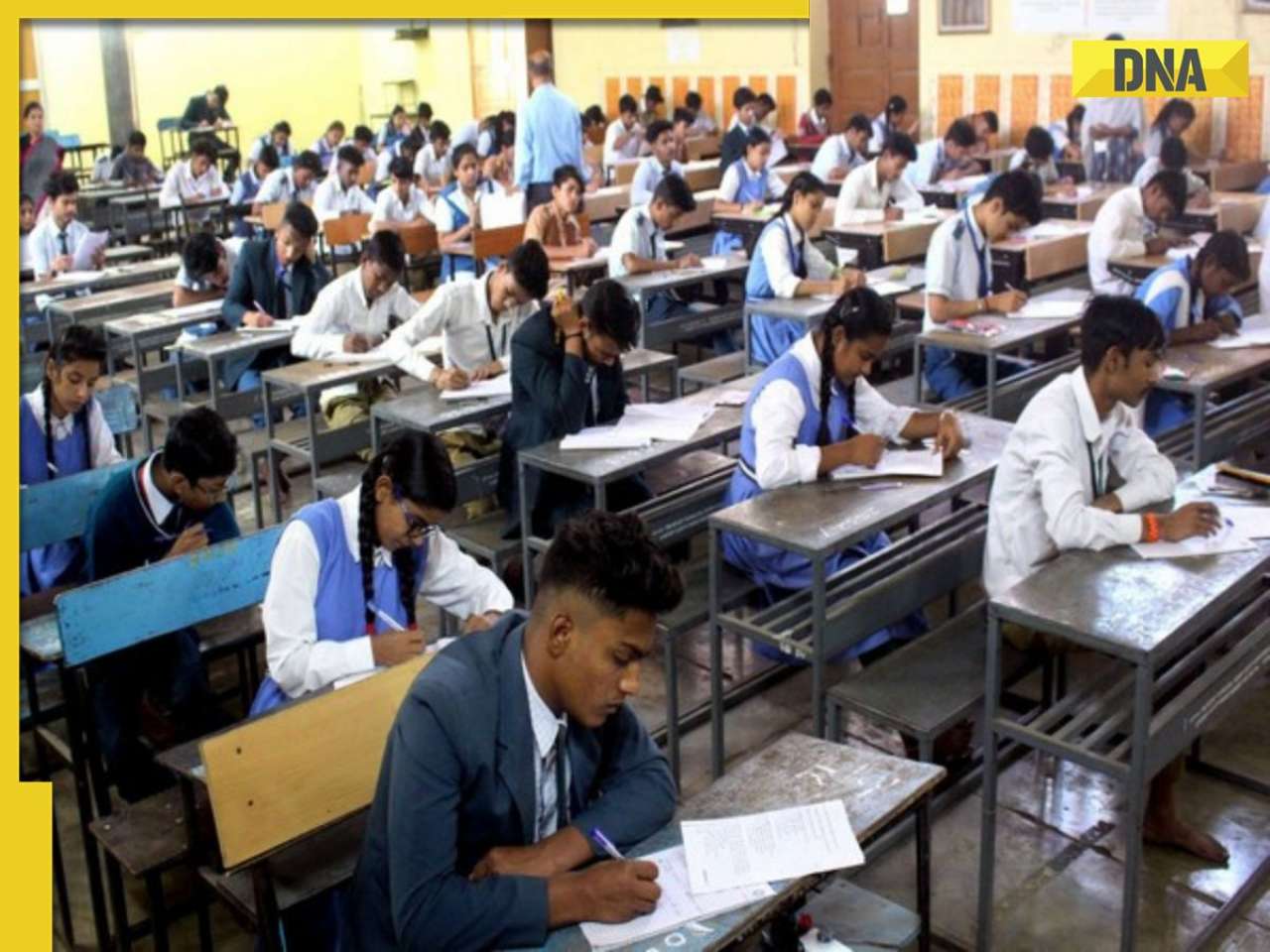The recent expansion of the Brazil, Russia, India, China, South Africa (BRICS) grouping to BRICS+6 has predictably drawn differing reactions from commentators globally.
In the aftermath of the Russia-Ukraine conflict, several middle powers sharing strong ties with the US have taken an independent stance regarding the conflict at variance from the US. This includes India, UAE, Saudi Arabia and Indonesia. India’s purchase of oil at discounted prices and the decision of OPEC+ to reduce oil production, driven largely by Saudi Arabia and Russia, have not gone down well with the West – especially the US.
There has also been a push for ‘de-dollarization’ or lesser dependence on the US Dollar for trade. Many countries have already begun oil trade in non-dollar currencies while negotiations are going on regarding non-dollar trade in non-oil commodities. Developing countries, especially India, have also been flagging the point that concerns of the Global South are often relegated to the margins in the existing international landscape. Several countries have also repeatedly highlighted the impact of US sanctions on Russia and their impact on the developing world.
The recent expansion of the Brazil, Russia, India, China, South Africa (BRICS) grouping to BRICS+6 has predictably drawn differing reactions from commentators globally. Many commentators have argued that the expansion of BRICS is a reiteration of increasing Chinese clout and US decline. A few points need to be borne in mind.
First, several of the countries which have been admitted into BRICS have robust ties with the US – even though there may have been a downward slope in recent years due to various economic and geopolitical changes.
Second, the new entrants into BRICS have stated that they would not like the organisation to be viewed from a zero-sum prism. Instead, they would like to use this platform for leveraging economic opportunities, expanding trade with other members and harnessing other opportunities. The UAE’s economy minister Abdulla Bin Touq Al-Marri, for instance, categorically stated that his country’s entry into BRICS would not have any adverse impact on its ties with the West.
While the BRICS organisation is often viewed from the dimension of India-China rivalry, several of the new entrants share good ties with India and have also acknowledged India’s support for their entry into BRICS. As mentioned earlier, India – during its presidency of G20 -- has been underscoring the concerns of the Global South and is likely to use BRICS platform for raising issues impacting developing countries. Indian Prime Minister Narendra Modi, while welcoming the expansion of BRICS, said that international institutions needed to reform and adapt to the changing global situation.
Third, the West itself has been guarded regarding the expansion of BRICS. A US State Department official, while commenting on the recent expansion of BRICS, said that the country “will continue to work with our partners and allies in bilateral, regional and multilateral fora … The US reiterates its belief that countries may choose the partners and groupings with whom they will associate.”
The decision of Indonesia to put its entry into BRICS on hold is also important. Indonesia was one of the 40 countries which had been invited to join BRICS, but Indonesian President Joko Widodo said that while he was considering membership of BRICS, he did not want to “rush into it”.
Indonesia’s stance vis-à-vis the Russia-Ukraine conflict was clearly different from the West, and it has been vocal regarding issues pertaining to the Global South. The ASEAN nation also shares robust economic relations with China. Yet, its caution vis-à-vis joining BRICS is being attributed to it not wanting to sour ties with the US. The ASEAN nation is also seeking to join OECD and entry into BRICS could prove to be a stumbling block for the same.
Limits of De-dollarization
If one were to look beyond BRICS and the criticism of the current international economic architecture, there is a clear understanding regarding the pitfalls of “de-dollarization”. In an interview on the sidelines of the B20 Summit, India’s Oil and Gas Minister Hardeep Singh Puri while commenting on the prospects of de-dollarization remarked, “I don’t know what kind of change [the dollar needs to] be affected but I don’t see it ... It’s not so easy.”
In conclusion, while it is tempting to view the expansion of BRICS purely from the prism of China’s growing influence, it is important to have a layered approach and to understand that out of the new members two countries – UAE and Saudi Arabia – have robust ties with the US. It is also important to bear in mind that while many developing countries may have strong differences with the West, anti-westernism by itself is not a strong glue for any grouping.
The author is a policy analyst and faculty member at the Jindal School of International Affairs, OP Jindal Global University, Sonipat.
(Disclaimer: The views expressed above are the author's own and do not reflect those of DNA.)
![submenu-img]() British TV host calls Priyanka Chopra 'Chianca Chop Free', angry fans say 'this is huge disrespect'; video goes viral
British TV host calls Priyanka Chopra 'Chianca Chop Free', angry fans say 'this is huge disrespect'; video goes viral![submenu-img]() Meme dog Kabosu, that inspired Dogecoin, dies
Meme dog Kabosu, that inspired Dogecoin, dies![submenu-img]() Deepika Padukone radiates 'mummy glow', spotted with baby bump in new video, netizens call her 'prettiest mom'
Deepika Padukone radiates 'mummy glow', spotted with baby bump in new video, netizens call her 'prettiest mom'![submenu-img]() India's biggest action film, had 1 hero, 7 villains, became superhit, made for Rs 6 crore, earned over Rs..
India's biggest action film, had 1 hero, 7 villains, became superhit, made for Rs 6 crore, earned over Rs..![submenu-img]() Will your Aadhaar Card become invalid after June 14 if not updated? Here's what UIDAI has to say
Will your Aadhaar Card become invalid after June 14 if not updated? Here's what UIDAI has to say![submenu-img]() Meet man, IIT Delhi, IIM Calcutta alumnus who quit high-paying job, became a monk due to..
Meet man, IIT Delhi, IIM Calcutta alumnus who quit high-paying job, became a monk due to..![submenu-img]() TBSE Result 2024: Tripura Board Class 10, 12 results DECLARED, direct link here
TBSE Result 2024: Tripura Board Class 10, 12 results DECLARED, direct link here![submenu-img]() Meghalaya Board Result 2024 DECLARED: MBOSE HSSLC Arts results available at megresults.nic.in, direct link here
Meghalaya Board Result 2024 DECLARED: MBOSE HSSLC Arts results available at megresults.nic.in, direct link here![submenu-img]() Meghalaya Board 10th, 12th Results 2024: MBOSE SSLC, HSSLC Arts results releasing today at megresults.nic.in
Meghalaya Board 10th, 12th Results 2024: MBOSE SSLC, HSSLC Arts results releasing today at megresults.nic.in![submenu-img]() Tripura TBSE 2024: Class 10th, 12th results to announce today; know timing, steps to check
Tripura TBSE 2024: Class 10th, 12th results to announce today; know timing, steps to check![submenu-img]() DNA Verified: Is CAA an anti-Muslim law? Centre terms news report as 'misleading'
DNA Verified: Is CAA an anti-Muslim law? Centre terms news report as 'misleading'![submenu-img]() DNA Verified: Lok Sabha Elections 2024 to be held on April 19? Know truth behind viral message
DNA Verified: Lok Sabha Elections 2024 to be held on April 19? Know truth behind viral message![submenu-img]() DNA Verified: Modi govt giving students free laptops under 'One Student One Laptop' scheme? Know truth here
DNA Verified: Modi govt giving students free laptops under 'One Student One Laptop' scheme? Know truth here![submenu-img]() DNA Verified: Shah Rukh Khan denies reports of his role in release of India's naval officers from Qatar
DNA Verified: Shah Rukh Khan denies reports of his role in release of India's naval officers from Qatar![submenu-img]() DNA Verified: Is govt providing Rs 1.6 lakh benefit to girls under PM Ladli Laxmi Yojana? Know truth
DNA Verified: Is govt providing Rs 1.6 lakh benefit to girls under PM Ladli Laxmi Yojana? Know truth![submenu-img]() Assamese actress Aimee Baruah wins hearts as she represents her culture in saree with 200-year-old motif at Cannes
Assamese actress Aimee Baruah wins hearts as she represents her culture in saree with 200-year-old motif at Cannes ![submenu-img]() Aditi Rao Hydari's monochrome gown at Cannes Film Festival divides social media: 'We love her but not the dress'
Aditi Rao Hydari's monochrome gown at Cannes Film Festival divides social media: 'We love her but not the dress'![submenu-img]() AI models play volley ball on beach in bikini
AI models play volley ball on beach in bikini![submenu-img]() AI models set goals for pool parties in sizzling bikinis this summer
AI models set goals for pool parties in sizzling bikinis this summer![submenu-img]() In pics: Aditi Rao Hydari being 'pocket full of sunshine' at Cannes in floral dress, fans call her 'born aesthetic'
In pics: Aditi Rao Hydari being 'pocket full of sunshine' at Cannes in floral dress, fans call her 'born aesthetic'![submenu-img]() DNA Explainer: Why was Iranian president Ebrahim Raisi, killed in helicopter crash, regarded as ‘Butcher of Tehran’?
DNA Explainer: Why was Iranian president Ebrahim Raisi, killed in helicopter crash, regarded as ‘Butcher of Tehran’?![submenu-img]() DNA Explainer: Why did deceased Iranian President Ebrahim Raisi wear black turban?
DNA Explainer: Why did deceased Iranian President Ebrahim Raisi wear black turban?![submenu-img]() Iran President Ebrahim Raisi's death: Will it impact gold, oil prices and stock markets?
Iran President Ebrahim Raisi's death: Will it impact gold, oil prices and stock markets?![submenu-img]() Haryana Political Crisis: Will 3 independent MLAs support withdrawal impact the present Nayab Saini led-BJP government?
Haryana Political Crisis: Will 3 independent MLAs support withdrawal impact the present Nayab Saini led-BJP government?![submenu-img]() DNA Explainer: Why Harvey Weinstein's rape conviction was overturned, will beleaguered Hollywood mogul get out of jail?
DNA Explainer: Why Harvey Weinstein's rape conviction was overturned, will beleaguered Hollywood mogul get out of jail?![submenu-img]() British TV host calls Priyanka Chopra 'Chianca Chop Free', angry fans say 'this is huge disrespect'; video goes viral
British TV host calls Priyanka Chopra 'Chianca Chop Free', angry fans say 'this is huge disrespect'; video goes viral![submenu-img]() Deepika Padukone radiates 'mummy glow', spotted with baby bump in new video, netizens call her 'prettiest mom'
Deepika Padukone radiates 'mummy glow', spotted with baby bump in new video, netizens call her 'prettiest mom'![submenu-img]() India's biggest action film, had 1 hero, 7 villains, became superhit, made for Rs 6 crore, earned over Rs..
India's biggest action film, had 1 hero, 7 villains, became superhit, made for Rs 6 crore, earned over Rs..![submenu-img]() Neha Sharma says having morals 'doesn't take you very far' in Bollywood: 'Clearly why I am not...' | Exclusive
Neha Sharma says having morals 'doesn't take you very far' in Bollywood: 'Clearly why I am not...' | Exclusive![submenu-img]() This iconic film was made on suggestion by former Prime Minister, was rejected by Rajesh Khanna, Shashi Kapoor, earned..
This iconic film was made on suggestion by former Prime Minister, was rejected by Rajesh Khanna, Shashi Kapoor, earned..![submenu-img]() Meme dog Kabosu, that inspired Dogecoin, dies
Meme dog Kabosu, that inspired Dogecoin, dies![submenu-img]() Viral Video: Turtles flip over stranded friend in heartwarming rescue, internet hearts it
Viral Video: Turtles flip over stranded friend in heartwarming rescue, internet hearts it![submenu-img]() Shocking! Woman discovers intruder living in her bedroom for four months, details inside
Shocking! Woman discovers intruder living in her bedroom for four months, details inside![submenu-img]() Can you spot 'ghost of the mountain'? Internet stumped by camouflaged snow leopard
Can you spot 'ghost of the mountain'? Internet stumped by camouflaged snow leopard![submenu-img]() Viral video: Women engage in physical altercation over Rs 100 dispute at medical shop
Viral video: Women engage in physical altercation over Rs 100 dispute at medical shop





































)


















)
)
)
)
)
)